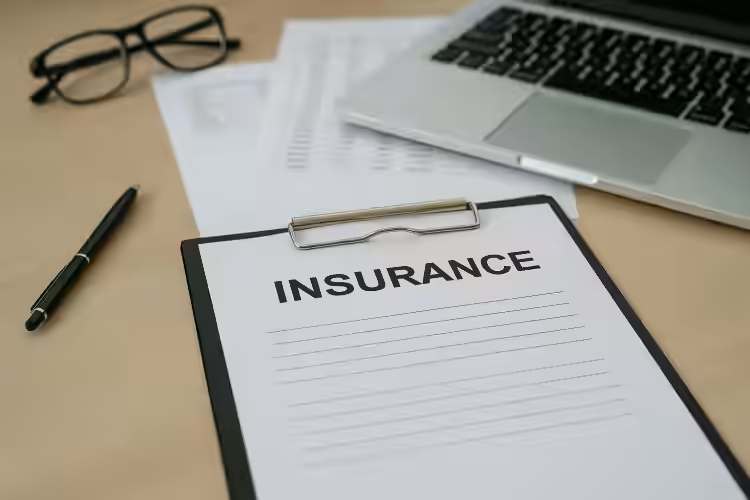Do You Need Insurance to Lease Industrial Space?
If you're signing a lease for a warehouse or industrial facility, there's one question that always comes up right after rent and square footage: what kind of insurance do I need?
Some tenants treat it like an afterthought. Others assume their personal or business insurance will cover it. Spoiler alert: it probably won’t.
Here’s what you actually need to know before you take possession of your new space—and how to avoid insurance headaches that could cost you big later.
The Short Answer: Yes, You Need It
Almost every industrial lease requires insurance. No exceptions if you’re dealing with a professional landlord. It’s baked into the lease terms—and if you don’t provide proof of insurance (aka a “certificate of insurance” or COI), you probably won’t get the keys.
It’s not just bureaucracy, either. Think about it: warehouses come with risks. Forklifts, inventory, storm damage, electrical issues, you name it. Landlords aren’t going to take on that liability—and neither should you.
Bottom line: if you’re planning to operate out of industrial space, insurance isn’t optional. It’s part of the cost of doing business.
Types of Insurance Landlords Usually Require
So what exactly do they want to see on your COI? Here’s the usual lineup:
1. Commercial General Liability (CGL)
This covers bodily injury and property damage you (or your employees) may cause while operating in the space. It’s the core policy every lease requires.
- Typical minimum: $1 million per occurrence / $2 million aggregate
- Might include fire legal liability coverage (important if you’re in a multi-tenant building)
2. Property Insurance
Covers your stuff: inventory, machinery, racking, etc. Not technically required by the landlord, but foolish to skip. If a fire wipes out your product, your CGL won't help you here.
3. Tenant Improvements & Betterments Coverage
If you build out offices, install racking, or customize the space, this covers the cost if those upgrades are damaged or destroyed.
4. Workers’ Compensation
Required by law in most states. Covers employee injuries on the job—even if they trip over a broom. And yep, the landlord may ask to see proof.
5. Business Interruption Insurance
Optional but highly recommended. If your operations halt because of a covered event (like a fire or major damage), this helps cover lost income while you recover.
Why Landlords Care About Your Coverage
Think about it from their side. If your forklift driver damages a support column, or your HVAC unit causes a fire, they want to make sure:
- You can pay for the damage (without suing them)
- Their insurance company doesn’t get dragged into your mess
Also, most landlords carry their own insurance on the building—but it only covers the shell, not what’s inside. Your gear, stock, and employees? That’s all you.
That’s why leases usually include a clause requiring you to name the landlord as an “Additional Insured.” It’s a legal shield—and if you forget to add it, the landlord may default your lease.
What You Actually Need to Cover
Let’s say you’re leasing 20,000 square feet in Charlotte, North Carolina. What should you make sure is insured?
- Inventory — Raw materials, finished goods, packaging supplies
- Equipment — Forklifts, conveyors, IT hardware
- Build-outs — Office partitions, lighting, custom HVAC
- People — Employees, contractors, visitors
Also, watch out for deductibles and exclusions. That cheap policy might not cover water damage, mold, theft, or windstorms—depending on your location.
Common Insurance Mistakes Tenants Make
Assuming the landlord’s insurance covers everything
It doesn’t. Their policy protects their asset, not your business.
Waiting until the last minute
Insurance paperwork can take days—or weeks. Don’t wait until move-in day to call your agent.
Getting low coverage limits to save money
Landlords may reject your certificate. Or worse—you’re stuck paying out of pocket if something happens.
Not updating your coverage as you grow
If you double your inventory but don’t update your policy, you’re underinsured. And claims could be denied.
How Much Does This Stuff Cost?
Depends on what you do, where you are, and how much coverage you need. But here’s a rough idea:
- General liability: $500–$2,500/year for most small to mid-sized operations
- Property insurance: 0.25%–1% of total insured value annually
- Workers’ comp: Varies widely by headcount and job type
For a typical warehouse-based business in Columbus, Ohio, expect total annual insurance costs to be somewhere between $2,000 and $10,000. That’s a small price to pay compared to the risk of losing $300K in inventory to a lightning strike.
Final Tips Before You Sign That Lease
1. Ask for insurance requirements up front
Before you sign, get a list of what the landlord expects in your insurance policy. Most include this in the lease as an exhibit.
2. Talk to your broker or agent early
Don’t DIY this if you’re not familiar. A commercial insurance broker can match your lease terms to real-world coverage.
3. Review every year
Your business will evolve. Your policy should too. Make it a habit to reassess coverage every renewal cycle—or after any big change.
4. Get it in writing
Always request a certificate of insurance that names the landlord (and their property manager, if applicable) as additional insureds. Keep a copy on hand—some landlords require annual renewals sent automatically.
Final Thoughts: Protect Before You Possess
Leasing warehouse or industrial space isn’t like renting a storage unit. You’re responsible for a lot—and insurance is how you protect yourself, your team, and your future.
Yes, you need it. No, it’s not cheap. But when the unexpected happens—and in industrial settings, it eventually will—having the right policy in place means your business survives and keeps moving.
So don’t treat insurance like a box to check. Treat it like a critical tool in your operational toolkit. Because peace of mind? That’s something you can’t afford to lease without.

